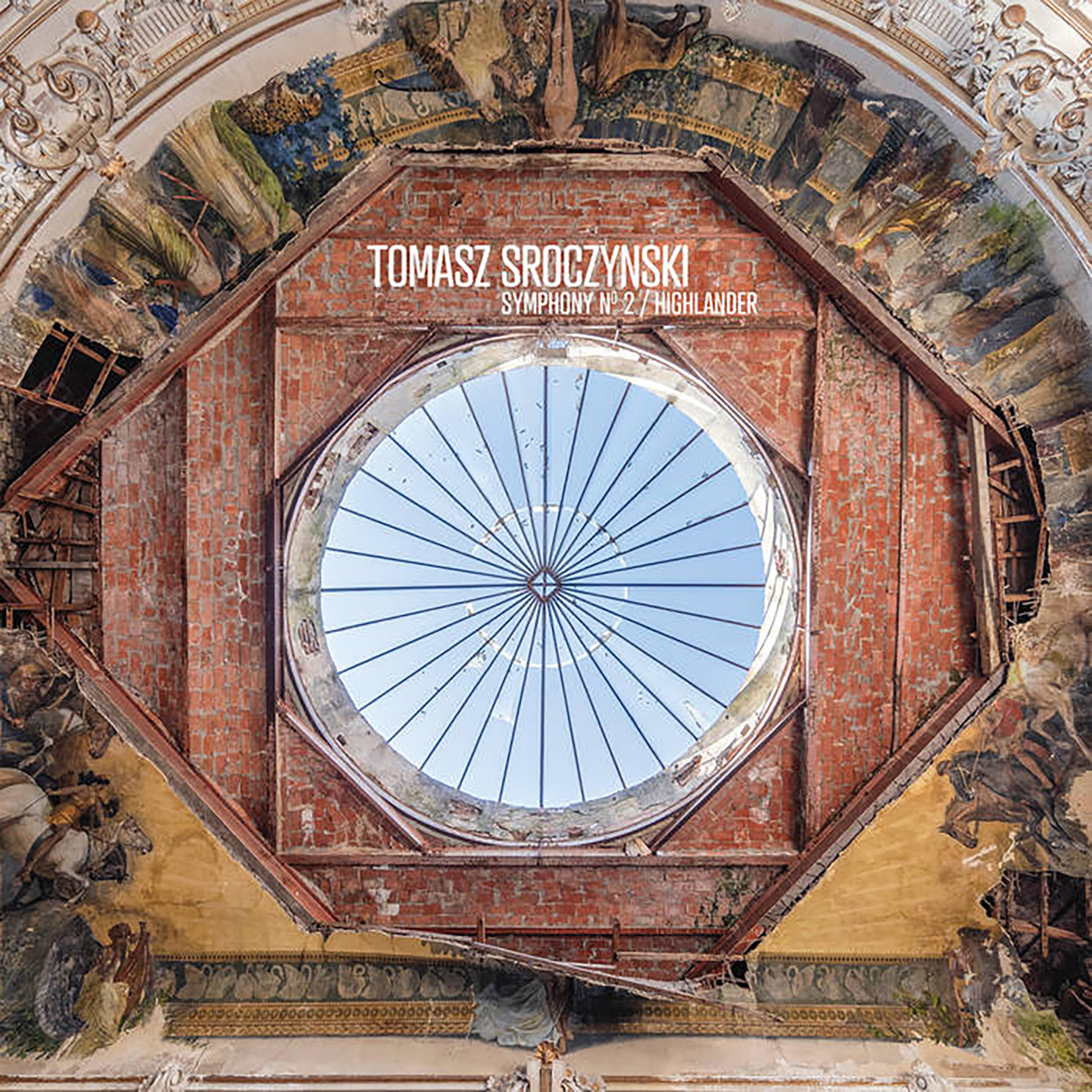 This album was my first exposure to this Polish composer, but this appears to be his sixth album if I include his improv trio and his collaborations. Also, it is the second symphony that he has composed (the first being 2017's Resurrection). Some of his past albums are a bit closer to my own weird/experimental sensibility (Primal and Ajulella, for example), but Symphony n°2 / Highlander is a more straightforward modern classical release and it is one hell of a great one. Or perhaps it would be more accurate to say that Highlander is composed of three very good pieces and one absolutely brilliant one. Naturally, that one absolutely brilliant piece ("Moderato Pastorale") is the best reason to seek this album out, but as the album description notes, "Tomasz Sroczynski is a symphony in his own right." Hyperbole aside, Sroczynski is indeed a genuinely fascinating composer, seamlessly combining influences as disparate as Arvo Pärt, experimental improv, and strains of both classic Detroit techno and contemporary German minimalist techno.
This album was my first exposure to this Polish composer, but this appears to be his sixth album if I include his improv trio and his collaborations. Also, it is the second symphony that he has composed (the first being 2017's Resurrection). Some of his past albums are a bit closer to my own weird/experimental sensibility (Primal and Ajulella, for example), but Symphony n°2 / Highlander is a more straightforward modern classical release and it is one hell of a great one. Or perhaps it would be more accurate to say that Highlander is composed of three very good pieces and one absolutely brilliant one. Naturally, that one absolutely brilliant piece ("Moderato Pastorale") is the best reason to seek this album out, but as the album description notes, "Tomasz Sroczynski is a symphony in his own right." Hyperbole aside, Sroczynski is indeed a genuinely fascinating composer, seamlessly combining influences as disparate as Arvo Pärt, experimental improv, and strains of both classic Detroit techno and contemporary German minimalist techno.
A sane and honest critical assessment of Sroczynski's second symphony could be easily distilled to some variation of "just go listen to 'Moderato Pastorale' immediately." As tempting as that is, it is a bit lean on the details and I would be remiss if I did not mention that Sroczynski's primary tools for this album were just a violin, a sampler, and a harmonizer and that Highlander is a triumph of masterful loop architecture rather than the work of a world-class string ensemble. I was surprised to learn that, as it is hard to imagine the churning, propulsive intensity of "Moderato Pastorale" originating from anything less than a dozen violinists relentlessly bowing away with demonic intensity. Regardless of how it was made, "Moderato Pastorale" is pitch-perfect in every sense, as Sroczynski unleashes a god-tier motif and then nimbly manipulates the tension for ten glorious minutes. I suspect this is where Sroczynski's love of techno manifests itself: he handles dynamic tension the same way a virtuosic DJ might seamlessly assemble and deconstruct a monster groove. Sadly, Sroczynski does not attempt to replicate that deft combination of raw emotion and steadily intensifying trancelike repetition again, but that is mostly because each of these four pieces explores a different shade of moody, epic grandeur. The following "Adagio," for example, gradually transforms from darkly brooding cloudlike swells into a rapturously swooning and heaving crescendo of Romanticism. Elsewhere, "Diablak" combines a chunky rhythm of strummed violin with a mournful, ambiguously exotic melody, but soon takes some strange detours before landing somewhere best described as "wrong-speed psychotic ballroom dance nightmare." The closing title piece then returns to more billowing and cloudlike territory, but does so in a compelling way, as its deceptively amorphous structure is like a living, organic entity that can solidify whenever the need for an emotional crescendo appears. The four pieces add up to an absorbing and dramatic whole, as Sroczynski is very skilled at moving between heaving immensity and emotionally raw snatches of melody. That said, you should probably just go listen to "Moderato Pastorale" immediately.
Samples can be found here.
Read More

